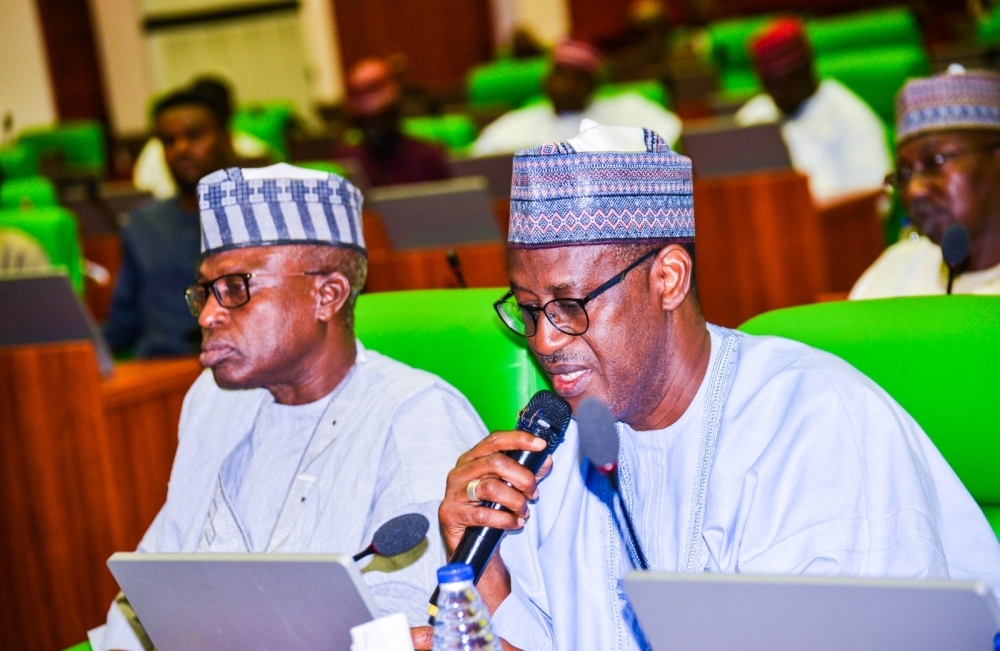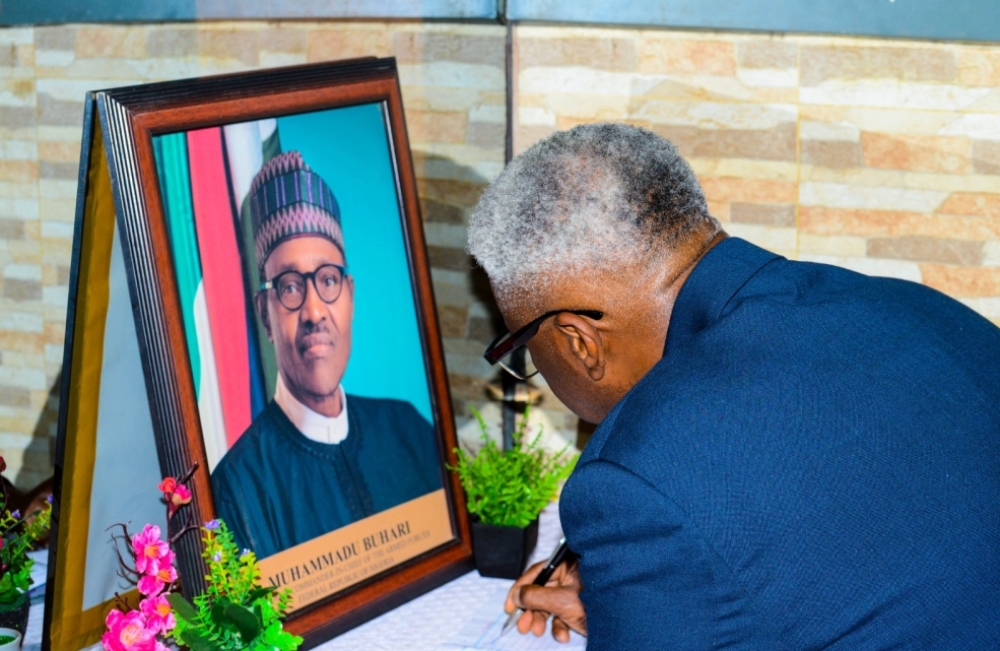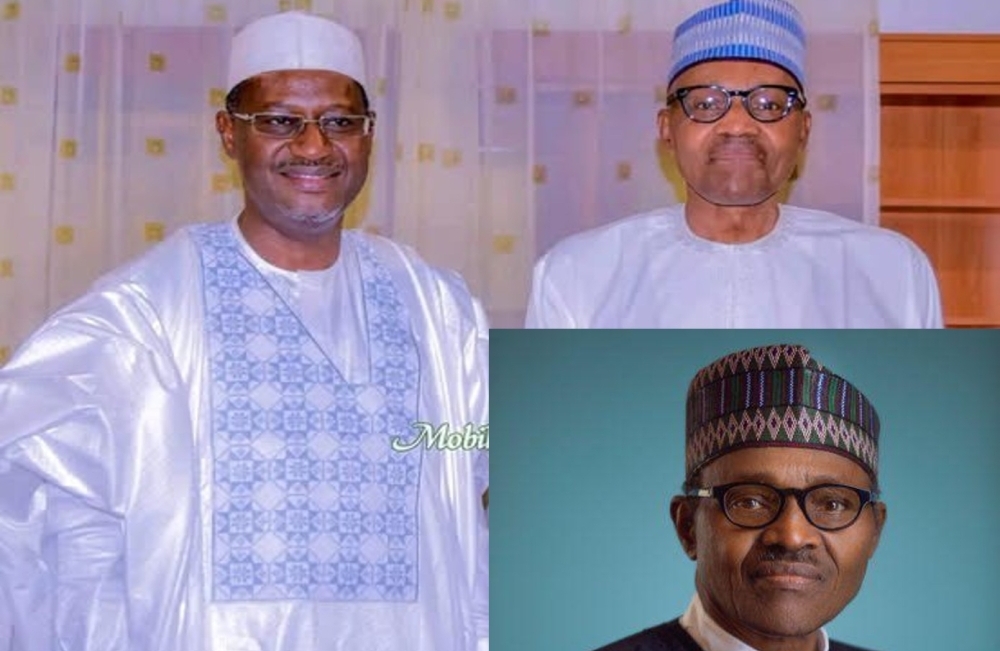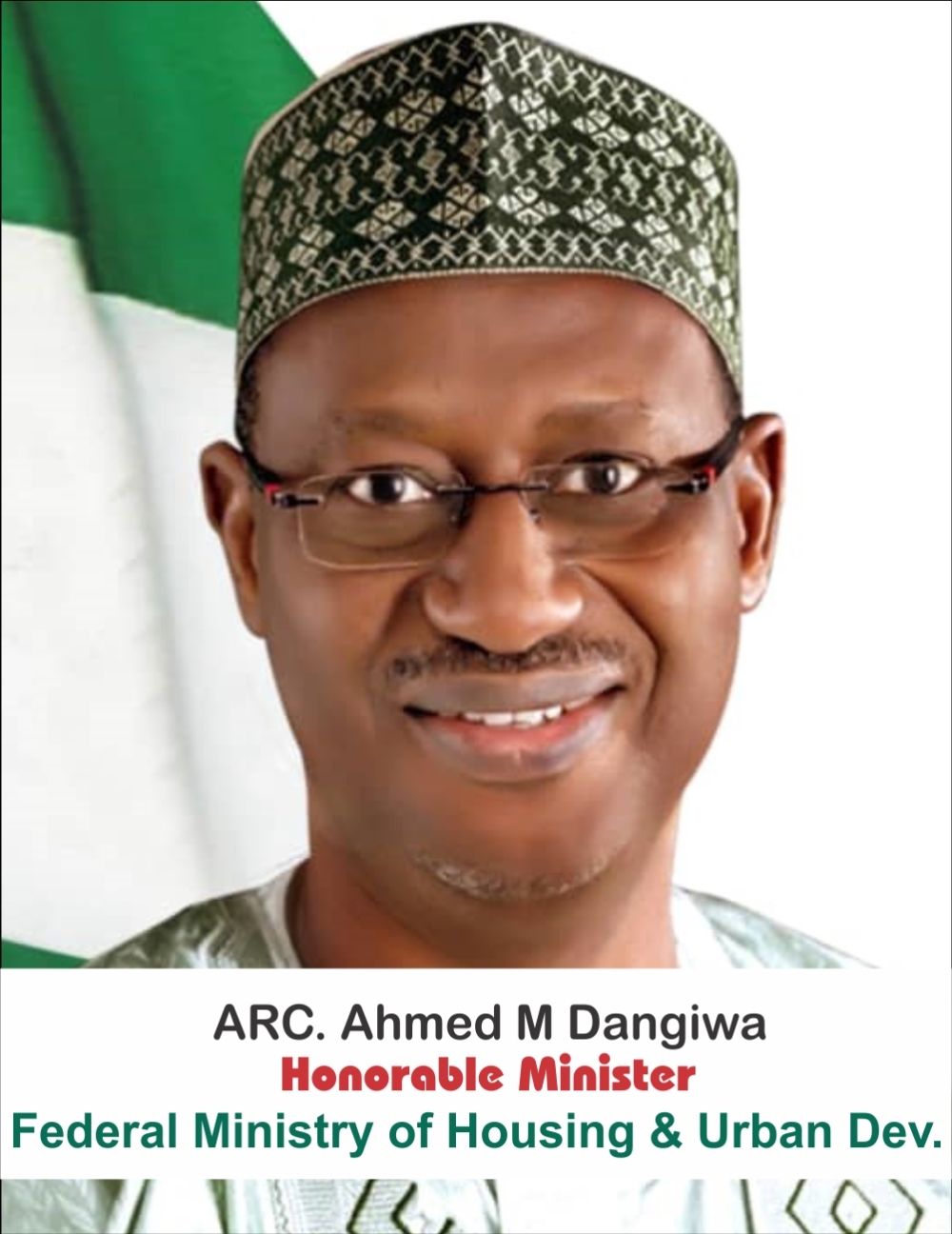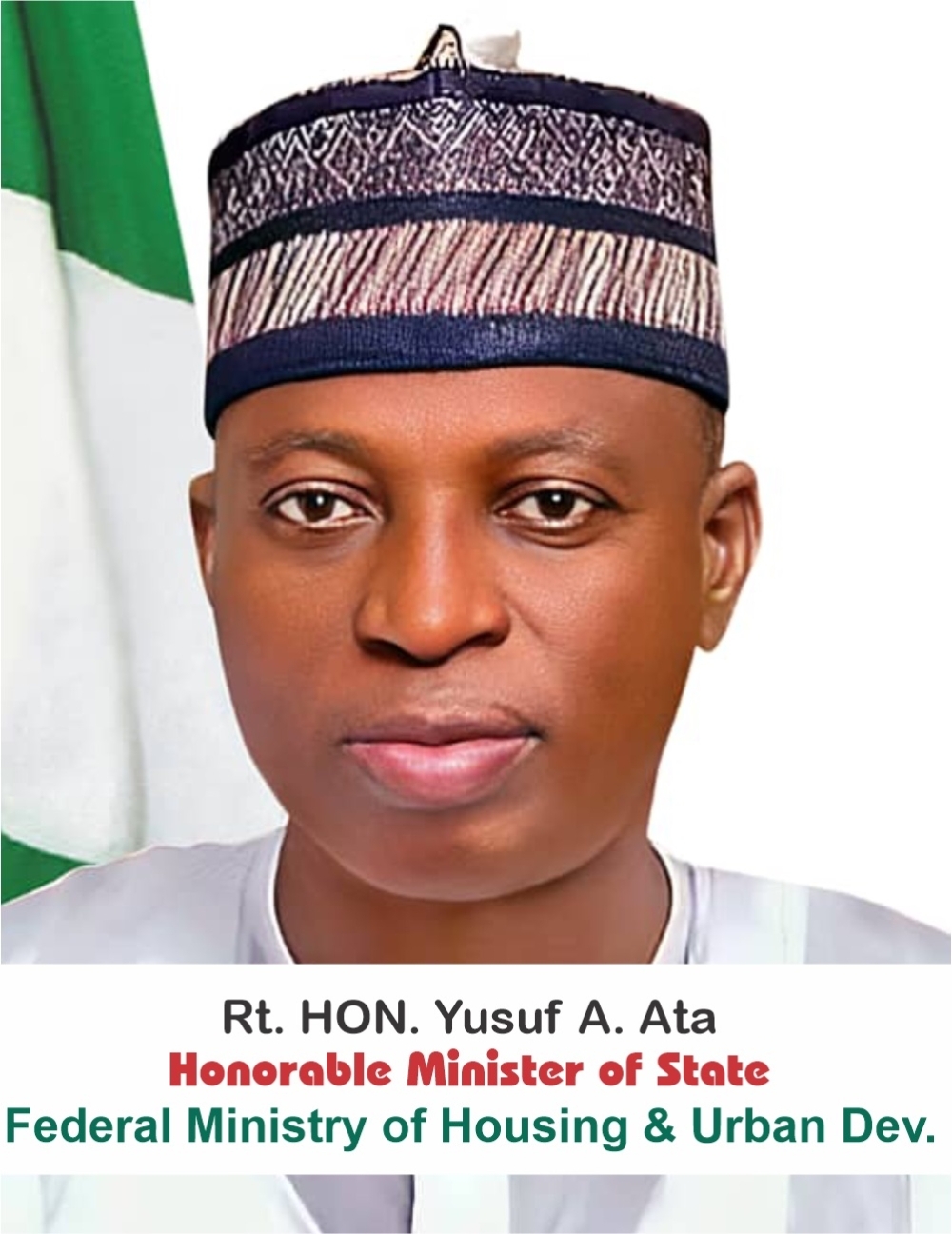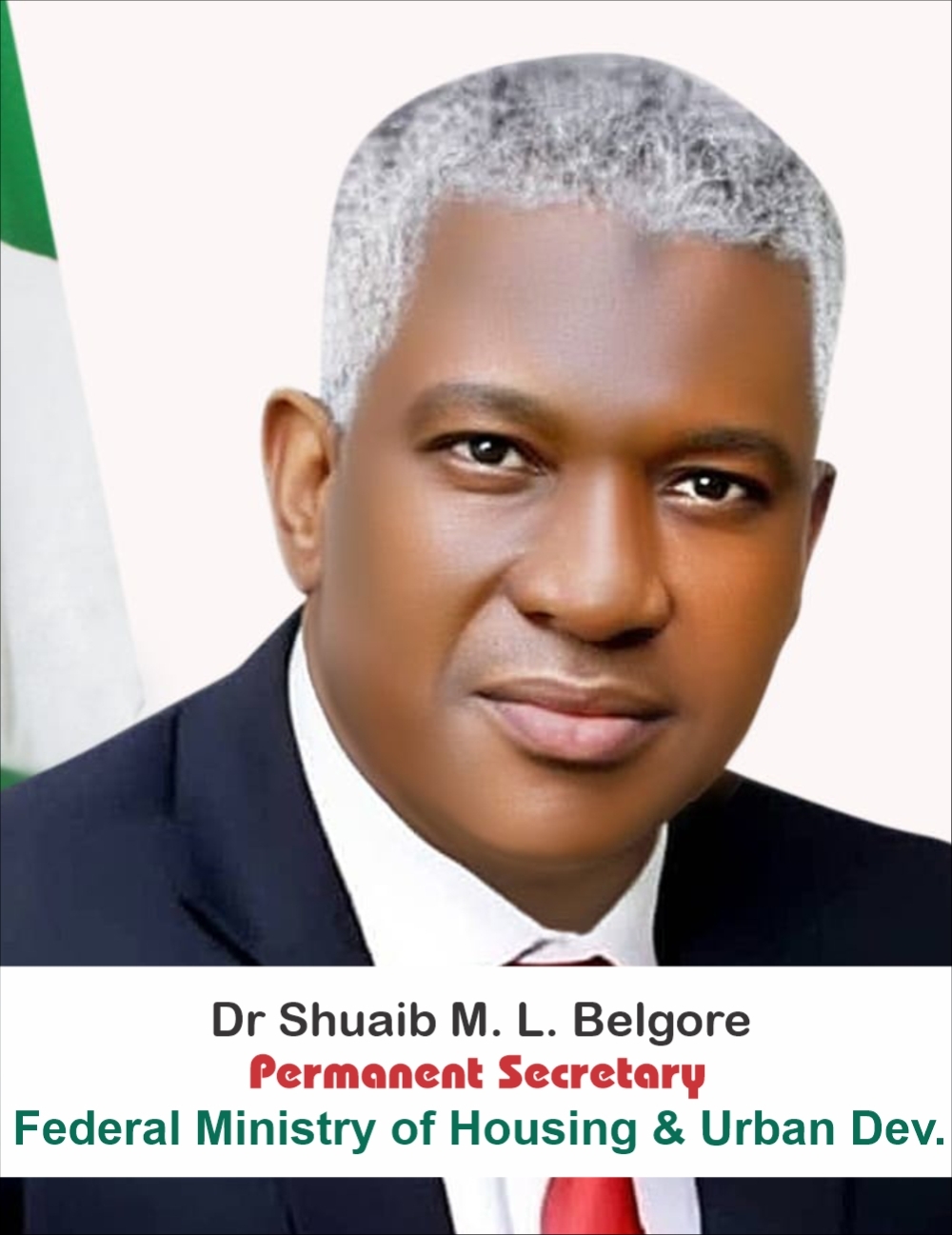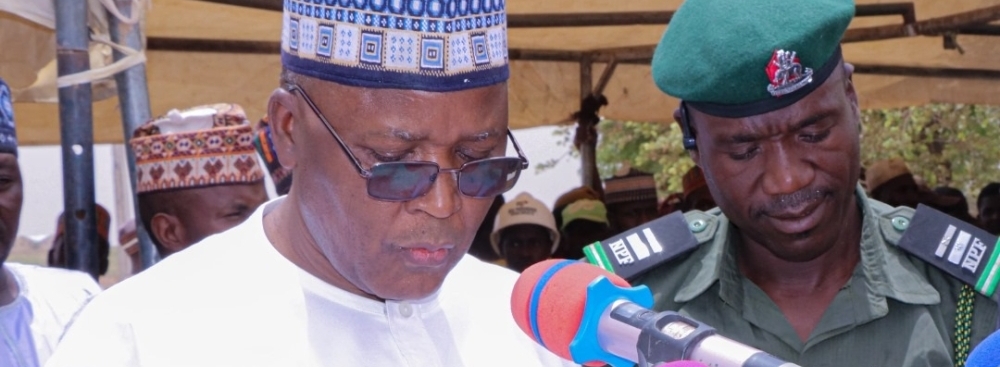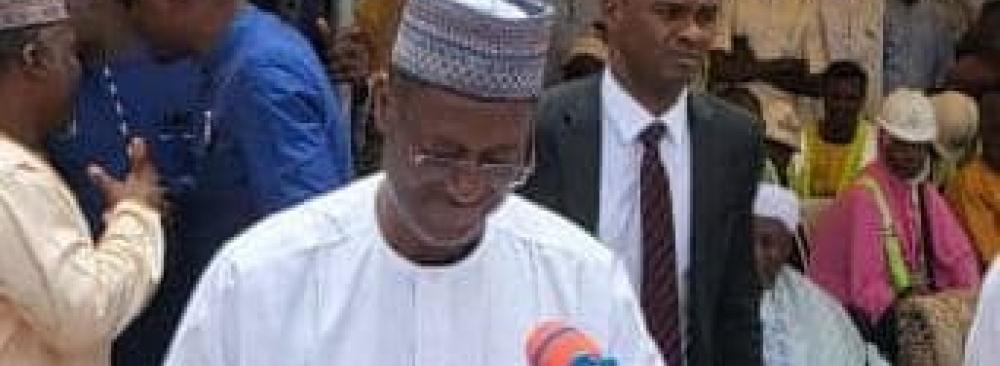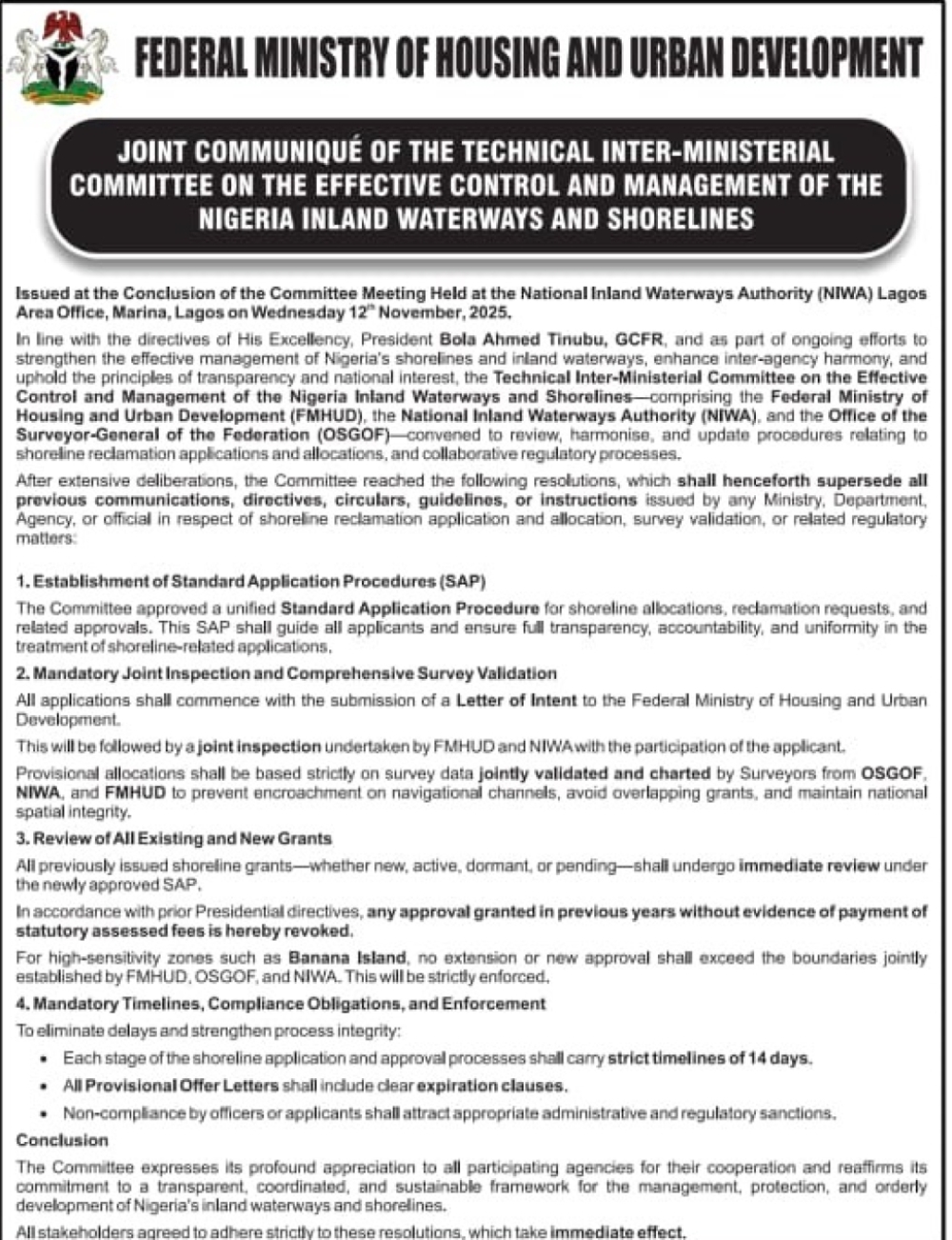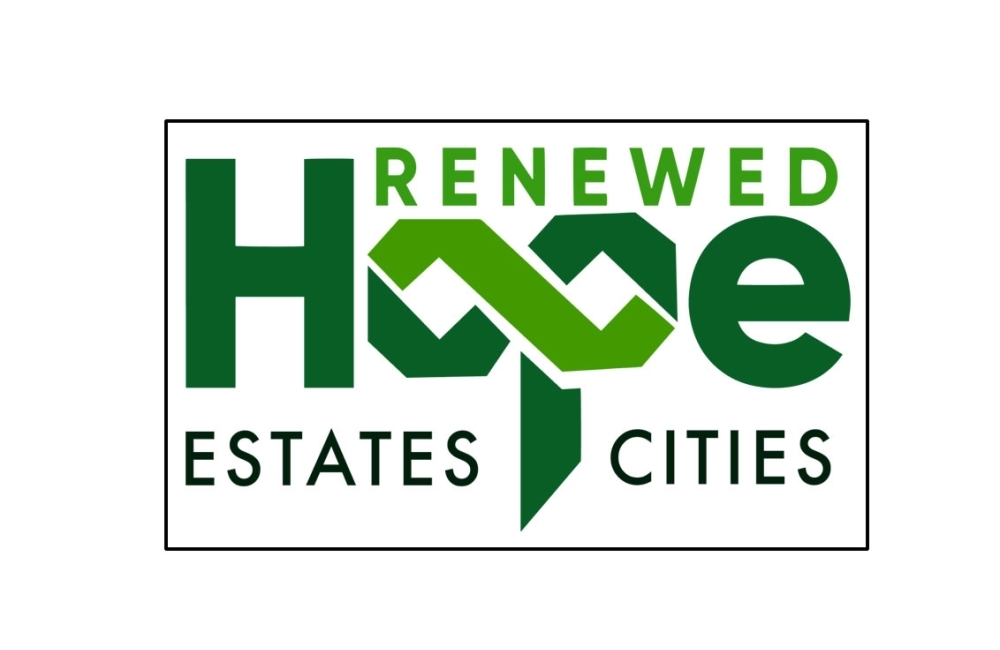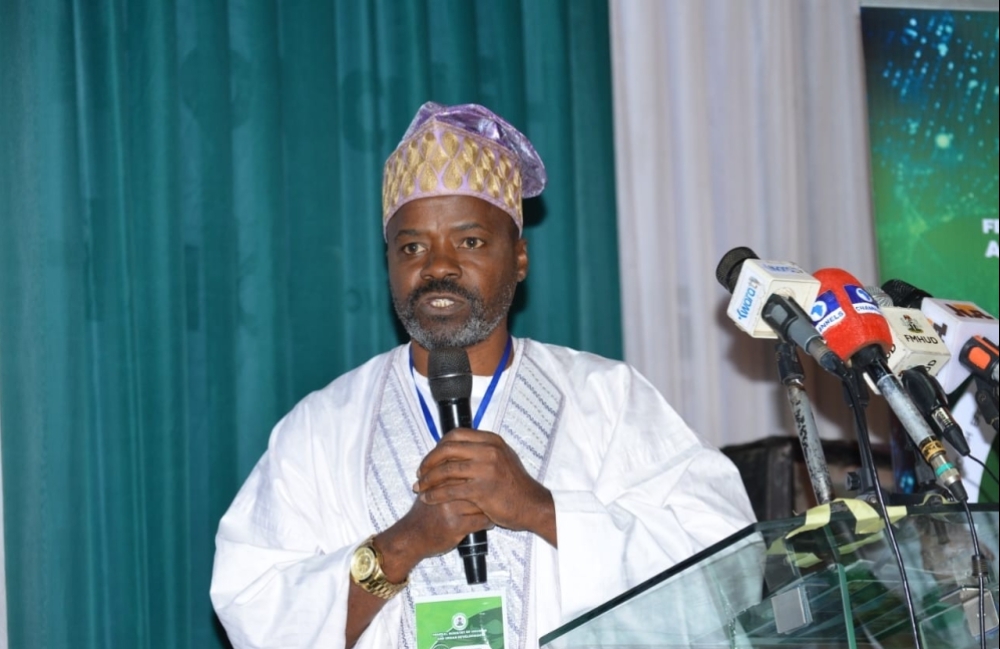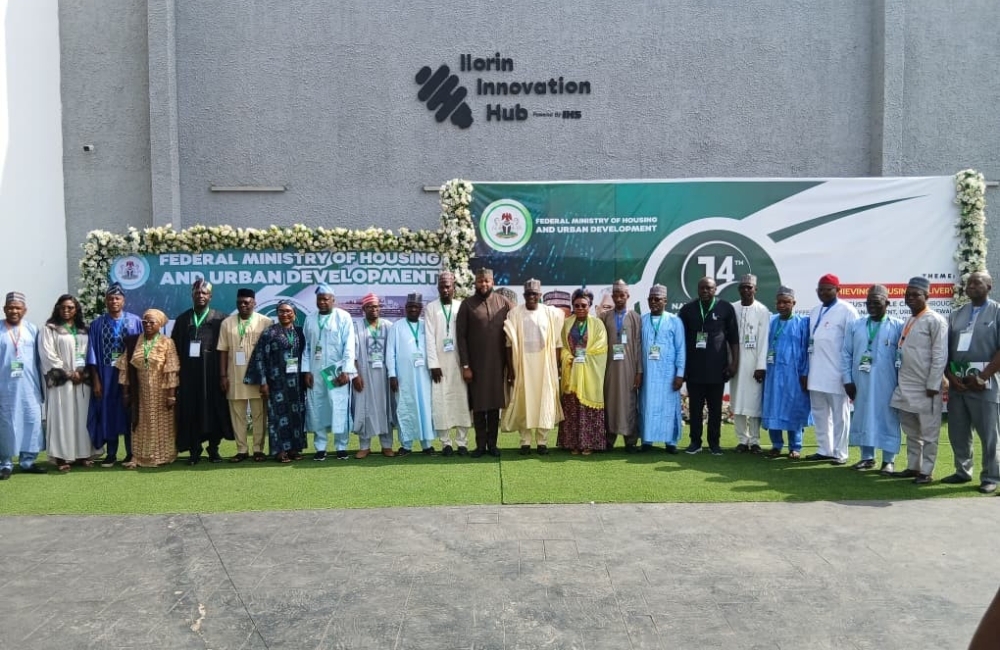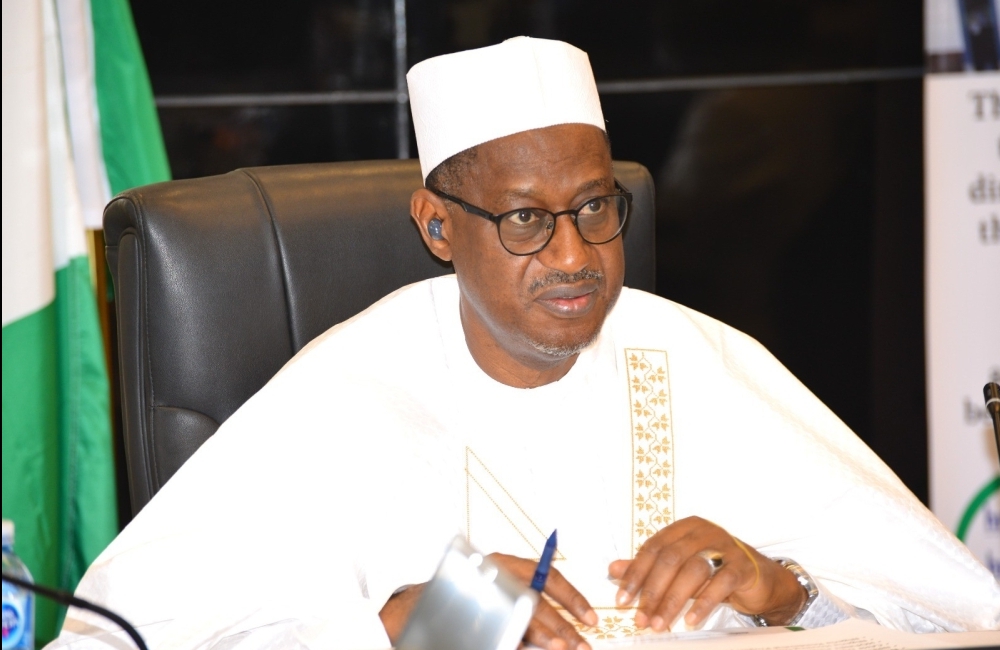
Housing Ministry, NIWA, OSGoF Harmonise Positions for Effective Shoreline Regulations
* Approve Unified Procedure for Shoreline Reclamation, Inland Waterways Management
Ministry of Housing and Urban Development (FMHUD), National Inland Waterways Authority (NIWA) and Office of Surveyor-General of the Federation (OSGoF) have come up with a unified and transparent framework for the effective control and management of national inland waterways and shorelines.
This is part of the resolutions of a meeting of the Technical Inter-Ministerial Committee on the Effective Control and Management of National Inland Waterways and Shorelines.
The committee, comprising the Federal Ministry of Housing and Urban Development (FMHUD), the National Inland Waterways Authority (NIWA) and the Office of the Surveyor-General of the Federation (OSGOF), was set up to review, harmonise and update procedures on shoreline reclamation applications, allocations and collaborative regulatory processes.
Minister of Housing and Urban Development, Arc. Ahmed Musa Dangiwa, the Managing Director of National Inland Waterways Authority (NIWA), and Surveyor-General of the Federation, set up the tripartite inter ministerial technical committe to carry out the assignment.
This is in line with the directives of His Excellency, President Bola Ahmed Tinubu, GCFR, and the aspirations of the Renewed Hope Agenda.
The inter ministerial technical committee meeting focused on strengthening inter-agency collaboration, enhancing transparency and safeguarding the national interest in the administration of Nigeria’s shoreline and inland waterways assets.
Following extensive deliberations, the Committee approved a unified Standard Application Procedure (SAP) to guide all shoreline allocations, reclamation requests and related approvals, in order to ensure uniformity, accountability and transparency.
Under the new framework, all shoreline applications shall commence with the submission of a Letter of Intent to the Federal Ministry of Housing and Urban Development, to be followed by a mandatory joint inspection by FMHUD and NIWA, with the participation of the applicant.
The Committee further resolved that provisional allocations shall be based strictly on survey data jointly validated and charted by surveyors from FMHUD, NIWA and the Office of the Surveyor-General of the Federation, in order to prevent encroachment into navigational channels, avoid overlapping grants and safeguard national spatial integrity.
In addition, all existing shoreline grants-whether new, active, dormant or pending-shall be subjected to immediate review in line with the newly approved Standard Application Procedure. In accordance with earlier Presidential directives, any approval granted in previous years without evidence of payment of statutory assessed fees has been revoked.
For high-sensitivity locations, including Banana Island, the Committee directed that no new approval or extension shall exceed boundaries jointly established by FMHUD, OSGoF and NIWA, adding that strict compliance shall be enforced.
To strengthen process integrity and eliminate delays, the Committee approved a mandatory processing timeline of fourteen (14) days for each stage of the shoreline application and approval process. All Provisional Offer Letters shall henceforth carry clear expiration clauses, while non-compliance by officers or applicants shall attract appropriate administrative and regulatory sanctions.
The resolutions of the Committee supersede all previous communications, directives, circulars and guidelines issued by any Ministry, Department or Agency in respect of shoreline reclamation, allocation, survey validation and related regulatory matters.
The Committee commended the participating agencies for their cooperation and reaffirmed its commitment to a transparent, coordinated and sustainable framework for the management, protection and orderly development of Nigeria’s inland waterways and shorelines.
Close









